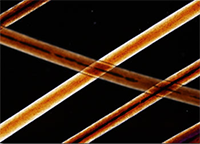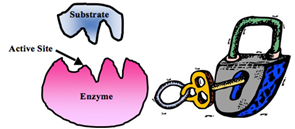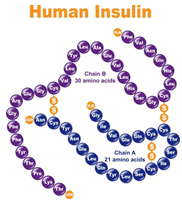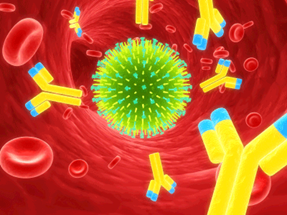




 |
 |
 |
 |
 |
|
Proteins are a major structural component for living organisms. Structural proteins include proteins such as the following:

Some proteins are enzymes. Enzymes are proteins that act as catalysts in organisms. Catalysts increase the rates of chemical reactions. (For more information on enzymes see Biology Module 4, Lesson 2.)

Some proteins aid in the transport of substances in and out of cells. Channel proteins are found in the cell membrane. (For more information on proteins in cellular transport, review Biology Module 1, Lesson 7.)

Some proteins function as hormones or chemical messengers in the body. Insulin is a hormone produced in the pancreas that regulates the amount of glucose in the blood. Somatotropin is a hormone that stimulates protein production in muscle cells.

Antibodies are specialized proteins involved in defending the body from antigens. Antibodies are used by the immune system to identify and defend against bacteria, viruses, and other foreign intruders.
